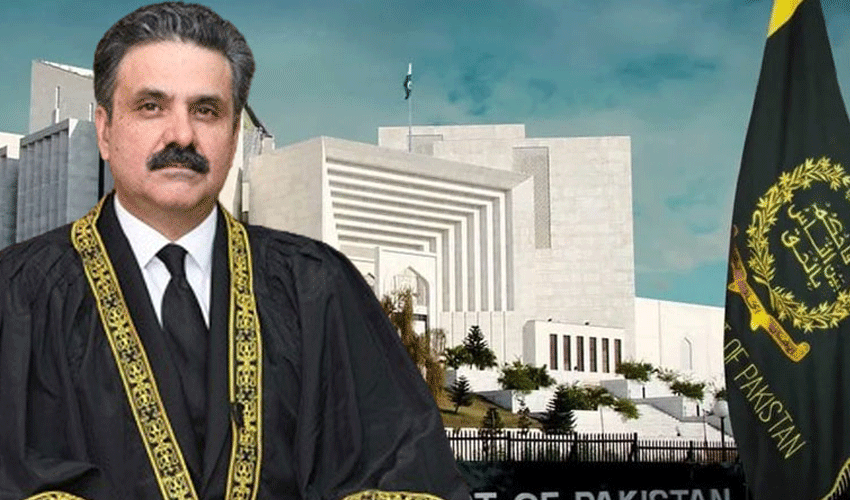The Supreme Court of Pakistan on Monday disposed of the appeals filed by the Punjab government seeking the cancellation of bail for those accused in the May 9 incidents, directing that the trials of all accused be concluded within the next four months.
The court emphasised the importance of adhering to legal timelines and ensuring the fair conduct of trials.
During the proceedings, Khadija Shah’s lawyer, Sameer Khosa, brought up concerns regarding her case, noting that although a similar order had been passed in one case, three other cases had also been registered against her.
Chief Justice Yahya Afridi assured the court that the legal rights of all accused, including Khadija Shah, would be safeguarded and highlighted that these assurances would be explicitly mentioned in the court order.
In response to Khadija Shah’s defense, her lawyer pointed out that although many witness statements had been recorded, the accused had not yet received a copy of the indictment.
He stressed the need for the independence of trial courts, further citing a letter written by the judge of the Anti-Terrorism Court (ATC) Sargodha to the High Court.
Chief Justice Afridi affirmed that the issue of judicial independence had been resolved and directed that all necessary documents, including the indictment, be provided to the accused without further delay.
The Court also heard the case regarding the bail cancellation of PTI leader Tayyaba Raja, who was involved in the May 9 attacks on Jinnah House. Upon inquiry by Chief Justice Afridi, Tayyaba Raja clarified that only the Jinnah House attack was relevant to her case. In line with the earlier orders, the court directed the trial to be completed within four months and disposed of the Punjab government’s appeal in this matter.
Notice issued in Umar Sarfraz Cheema’s Case
In another significant development, the Supreme Court issued a notice to PTI leader Umar Sarfraz Cheema in relation to the appeal for his physical remand in connection with the May 9 cases.
Cheema, who is currently incarcerated in Kot Lakhpat Jail, was allegedly involved in the May 9 incidents, with the prosecution claiming that weapons need to be recovered from him. In response to the inquiry, the prosecutor emphasized the necessity of physical remand, which had been previously denied by the High Court.
Chief Justice Afridi, addressing the prosecution’s request, suggested that if the accused was already in jail, any issues related to the investigation should be promptly resolved. The matter has been adjourned for further hearings.
Fawad Chaudhry appears before court
Former PTI leader Fawad Chaudhry also appeared before the Supreme Court during the May 9 hearings, raising concerns over his case not being scheduled for a hearing despite the court’s prior instructions. Chief Justice Afridi assured Chaudhry that his case would be scheduled for the following day, after Chaudhry expressed frustration that his case was being directly impacted by the court orders related to the May 9 incidents.
Chaudhry further mentioned that following the Supreme Court’s letter to the Anti-Terrorism Courts, the ATCs had been swiftly converted into military courts. However, Prosecutor Zulfiqar Naqvi denied knowledge of such a letter. The Chief Justice dismissed the claim, stating that if no official order had been issued, the letter in question would be retracted.
Court directs completion of May 9 cases
In a related development, the court ordered that all pending May 9 cases be scheduled for a hearing on Thursday, ensuring that the legal process continues without delay.
The court’s ruling underscores the urgency of resolving the cases swiftly and impartially, amidst growing public interest and concern regarding the handling of the May 9 incidents.
The Supreme Court’s decisions have been closely watched, as they reflect the judiciary's commitment to upholding the rule of law and ensuring that all accused, regardless of political affiliation, are granted their right to a fair trial within a reasonable timeframe.


























